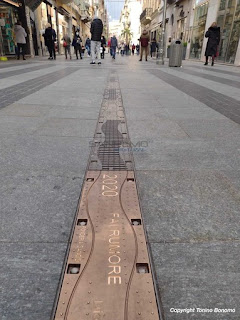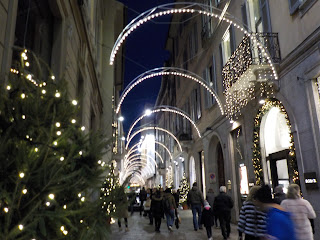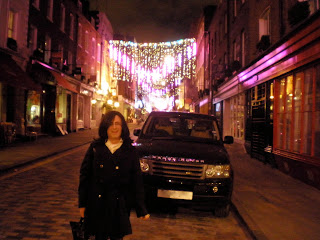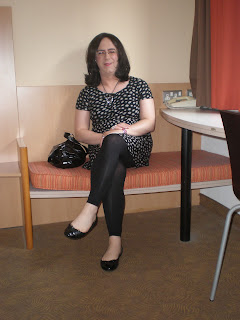I have always loved live performance, especially theatre, preferring it to film or TV, because of its more immediate engagement with the audience. I notice that one of my books, on a theatrical comedy, is still in print after 25 years and, doubtless, enthralling (!) university students somewhere even as I write. Even more sales would be good, but I won't link to it as Sue's News and Views has a strict policy of not outing trans people, and the book's in my male name.
My work at the moment includes input into a project involving the history of musical theatre. Specifically, the work of Pietro Metastasio, an Italian poet and dramatist who wrote many of the librettos (lyrics, if you prefer that term) that were used by innumerable eighteenth-century composers from Handel to Beethoven.
 |
| Pietro Metastasio in a well-known portrait by Pompeo Batoni |
But his work is of a particular style and subject matter that went out of fashion with the French Revolution and is not much performed today, though there have been some amazing revivals. If you want a contrast to the Sanremo Pop Festival taking place down the road this week, you could try this short sample from the enthusiastically received Opéra de Nancy's 2012 production of Metastasio's Artaserse with music by Leonardo Vinci (who is not the same as Leonardo da Vinci).
You can see that all the performers are men but all the voices are very feminine. The six characters in this production are all played by countertenors, which is the highest type of voice that men naturally reach, though it is possible to go higher and this is usually called falsetto, because the register isn't natural. If pop/rock is more your thing than classical music, then Frankie Valli, for instance, was well known for falsetto singing.
In Metastasio's day the highest registers (soprano) were often written for castrati (plural of castrato). One reason for male roles with high register is you can make the music much more florid than that for low registers. It's physics! There are a few male singers today who have unbroken voices, such as Radu Marian, who can take on these male soprano roles naturally. This, for example ("Zeffiretti innamorati" by Albinoni) shows his astonishing voice well:
The history of the castrati is really one of human rights abuses. If the end justifies the means, then beautiful art has benefited from the doctoring of boys too young to fully appreciate the long-term implications of what they were undertaking. A few castrati knew great success, such as Carlo Broschi, who went by the stage name of Farinelli. Most, though, ended up as jobbing singers in church choirs, just scraping a living. The practice ended as Metastasio's dramas were fading from popularity, though the Catholic Church continued to create castrati till the mid-nineteenth century.
Some of us would love never to have had our voices break. (And to be able to sing, but that's another story!) After puberty, developing a feminine voice takes a lot of work and I have admiration for trans women who take voice therapy classes. Of course, becoming a castrato has nothing directly to do with MtF transition but I am trying to find out if any choirboys of the Metastasio era perhaps opted for castrato status as a means of overcoming gender dysphoria. I suspect so. In the same way that some trans people in the past have opted to become, say, priests of Cybele, since most cultures have social roles that gender-different people can slip into even if the role per se doesn't actually interest them much.
I'm not actually into opera much myself but whilst searching around I came across this interesting article on how transgender singers are performing operatic roles today and even redefining the genre:
NY Times: Transgender opera singers find their voices (with links to their performances)
I'm writing this partly as a bit of cultural history that may be of interest as a change to my usual posts but also, in some ways, to counteract the prejudices of the local bishop who has condemned the annual national pop song festival in his diocese as being too camp. This from a man who goes round in a long satin robe and bolero with lace edgings, and whose church for centuries castrated young boys so they would sing like women. I don't like hypocrisy.
Sue x








